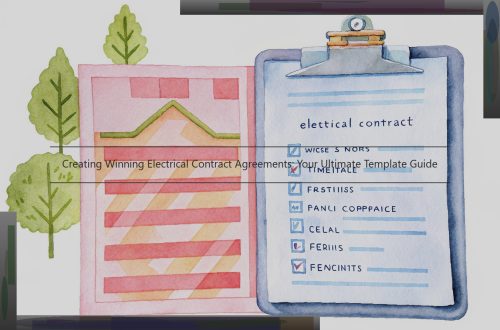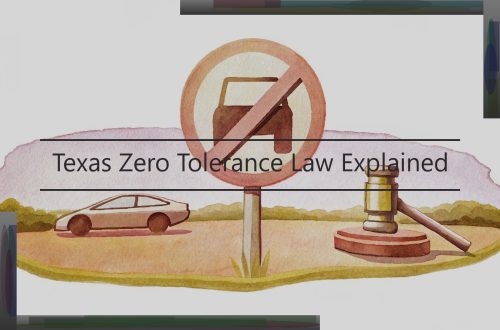Common Law Relationships In BC Explained
The Meaning Of Common Law In BC
In British Columbia, the term common law is used to refer to the relationship between two people who are living together as a couple in a "marriage-like" relationship without being married. The Family Law Act ("FLA") governs the division of property and debts for a couple living together in a common law relationship.
The requirements to qualify as a common law couple under the FLA include: To meet the threshold of living together in good faith as a couple for at least two years, two people generally must be residing together during that time. A breakdown in cohabitation, such as one party moving out of the family home for a period of time or the parties living separate and apart but continuing to fulfill familial obligations, may be seen as interruption in good faith cohabitation therefore disqualifying the parties from property division under the FLA. The separation may have been necessary due to employment or health reasons which does not detract from the intention of the parties to be in a marriage type relationship. However, where cohabitation is interrupted because one party has been unfaithful, does not treat their partner well, or is otherwise avoiding their familial obligations, the court will likely hold that the parties were not living together in good faith as a marriage-like couple.
Unlike a marriage , there are no legal requirements for dissolution of a common law relationship. Where the parties have been living together as a common law couple, and wish to separate, they do not need to file for, or wait out, a specific duration of a divorce proceeding. The process can be much easier as obtaining a divorce under the Divorce Act can be lengthy and costly.
Generally, a common law relationship will be considered a de facto relationship at common law. This means that a common law spouse has no legal right to property obtained during the time of the relationship. However, the FLA essentially changes the status of property upon separation. Once the parties qualify as living as a married couple for two years, they are automatically entitled to half of the value of the assets and debts acquired during the relationship, unless otherwise agreed to or ordered through the court. The FLA sets out different entitlements to property for married versus common law couples. Essentially, the FLA says that married couples have a presumptive equal share of property upon separation, whereas common law spouses only have an equal share in property that has been jointly acquired during the relationship. Prior to 2013, common law spouses were required to go through a more complex process for equalization of net family property under the Family Relations Act.

Rights And Obligations Of Common Law Partners
The Family Relations Act provides that a common law relationship is the functional equivalent to a marriage. This means all of the entitlements, obligations, and processes that apply to married couples also apply to common law couples, with the exception of the Marriage Act requirements.
The property held by you and your partner is divided in the same way as that held by a married couple. This means it is usually a process to sort through all of the assets owned by either or both of you and determine whether it was owned during the relationship. Any property that was owned solely by you, by your partner, or owned by you and your partner jointly, that you obtained up until you separated, is then considered family property and needs to be divided equally between you and your partner.
Spousal support is the right to receive financial assistance from your spouse during and/or after the marriage. Both married and common law spouses may have rights to spousal support. Spousal support is not automatic and must be proven. Whether or not spousal support is appropriate, and how much and for how long it will be paid, is based on the following principles:
In British Columbia, spousal support is generally considered to be a right you can "earn" by being married or living in a common-law relationship. However, in certain circumstances you can also claim an "involuntary" entitlement to spousal support. This can happen in cases where the couple became common law very quickly, but they live together long enough that the court treats them as if they were married.
The Family Relations Act sets out specific rules and guidelines to apply when spouse support is at issue.
Whether or not you are married, are you in a common-law relationship? It is important to know your rights when dividing property and determining spousal support.
Proving A Common Law Relationship
In order to be considered in a common law relationship in British Columbia, a couple must be living together in a marriage-like relationship. There is no formal process to register your relationship under B.C. law. Instead you simply cohabit with your partner and the law will deem you to be in a common law relationship. The law will consider you to be in a common law relationship once you meet the following conditions:
As well, as with married spouses, couples in a common law relationship have certain rights and obligations as established by law. These laws became effective May 18th, 2011. As the name suggests, these laws apply to common law spouses, and now some common law spouses have the same rights and obligations as spouses.
The law in British Columbia recognizes the cohabitation of two persons as spouses whether or not they are of the same of opposite sex. While there is no specific time period you must cohabit in order to establish a common law relationship, case law has indicated that cohabitation may begin at the time the parties live together. However, while the length of the cohabitation does not matter, the case law also notes that the length of the romantic relationship is a factor to consider when deciding whether the parties were spouses. In fact, it has been held that the parties must have lived together in a marriage-like relationship for 2 to 3 years before a finding that they were spouses can be made.
A non-exhaustive list of factors that the courts may look at when considering whether or not the parties were spouses includes:
You do not have to disclose that you are cohabiting with your significant other with any administrative body. Whether you will be required to disclose your committed relationship with your significant other will depend on what is being asked of you. Generally, if you are filling out a form that asks about your marital status, you should disclose that you are living with your significant other if you wish to be examined as spouses for the purposes of insurance, taxation, pension, etc.
Legal Consequences Of Separating From A Common Law Partner
Apart from the steps taken to divide your property upon separation, the biggest single issue for most separating spouses is the payment of spousal maintenance. If you have been living with your common law partner for 2 years, or more than 5 years (if you were cohabiting prior to July 1, 2013) then under the Family Law Act, if you are unable to support yourself through work or if you care for a child, you may be entitled to an order against your spouse for the payment of spousal maintenance.
Spousal maintenance does not have to be paid out of the payor’s income as is often the case with child support. It may be paid in a lump sum, i.e. a specific capital amount awarded to you at separation, or in the form of periodic payments. The order can be made for a fixed period, as an indefinite or a joint order of both of those types. Like child support, the recipient spouse has a right to take steps against a non-compliant payor spouse to enforce a spousal maintenance order.
As mentioned earlier, a key consideration in making or defending against a spousal maintenance order is the ability of the payor spouse to pay, and the recipient spouse’s financial need. Each spouse has a positive obligation to put their best foot forward to earn what they properly can, and if that leads to a circumstance of significant consequence to the other spouse, the latter spouse is expected to fall into the net of the paying spouse’s responsibilities. The recipient spouse may also have a secondary duty to share the spousal resources with children the couple had together to the degree that she can show a need to do so.
The analysis of what spousal maintenance should be will only make sense if the couple’s property is divided upon separation. If they cannot agree how to divide their property, they will have to resolve this issue through a Family Relations Act family arbitration process or by a Supreme Court proceeding. This will determine exactly what assets they have and how those assets will be divided between them as well as obligations owing by one or the other against a net value of the property they have. The starting point in dividing assets between a separating couple is to balance out what they have. To do this the court will look separately at what is considered to be the recipient spouse’s group of assets and the payor spouse’s group of assets.
Once the property division is done, we will then have enough background to determine whether a spousal maintenance order should be made. The property division for the purpose of determining if a spousal maintenance order is justified should usually take the following into account:
Perhaps the most important thing for separating spouses to appreciate in British Columbia is that what constitutes "property" is very broad. The definition in section 1(1) of the Family Law Act now includes all real property, personal property, and any interest in real or personal property. It can include any benefits received or accrued, warrants, shares, bonds, stocks, notes, options to purchase, and any other financial interests or instruments. The assets can be worth little but there could be a lot of them, or any one of them can be worth a significant amount.
Section 75 (previously 65) of the Family Law Act then prescribes how property values will be determined where spouses cannot agree on valuations. Most commonly, most assets will be valued according to the fair market value as at the date of trial but this can be modified to an earlier date if there are circumstances which warrant such an earlier valuation. The parties can also agree upon the fair market value of an asset, although if they cannot agree, then one party can have the expert who valued the property attend give evidence at trial about the value.
Once it has been determined what property the parties had and what its value is, the court will then divide the property between the spouses having regard to the following factors: It will also then turn to the impact of the spousal maintenance amount and length of time it ought to be paid.
Common Law And Children
When cohabiting parents separate without a marriage certificate, they should be aware that family law legislation does not apply to them. Cohabiting parents who separate do not have the same rights with respect to family property as married spouses, although the Parentage and Support Act applies to them. This means that common law spouses cannot make a claim for spousal support.
However, the courts certainly have jurisdiction under the Divorce Act if the spouses marry after separation or under the Family Relations Act if there are children involved. The Family Relations Act governs custody, guardianship and child support.
The Family Relations Act acknowledges that, when children are placed in an environment of conflict, such conflict may affect their sense of personal safety and security. There is a presumption of equal parenting time unless there is a risk of family violence or there are reasons why the child’s interests are "better met" by one parent having more parenting time or decision-making authority. These reasons are elucidated in the case of M.(C.A.) v. C.(A.), 2009 SCC 8, [2009] S.C.J. No . 9, where the court said the following at paragraph 27:
[…] The legislature’s use of the words "reasonably practicable" and "the best interests of the child" in section 16(5) suggests that the trial judge must consider all relevant evidence and balance all constitutional, potentially competing concerns, to decide whether the order would better suit the child’s needs than would a parenting arrangement that does not expressly allocate or equalize the time spent with the child. In making this determination, the judge must also consider the child’s views and preferences, where the child is able to express these views.
The interests of the child are placed ahead of the principle of "joint parenting". Fathers are also given equal parenting time as mothers and the issue of evidence to show that 50/50 parenting time arrangements have been "fair" is no longer mandatory.
Under the Family Relations Act, parents have both guardianship rights and parenting rights. Guardianship rights allow them to make decisions that affect the child’s life. Parenting rights include the right to contact with the child, to provide care for the child, to have access to the child’s information, to go on field trips, to supervise contacts between the child and third parties, to have the child reside with them, and to provide guidance to the child. Again, unlike the common law, there is no longer any gender-based reasoning for order-making with respect to custody of children.
Understanding Common Law Myths
Common law relationships in British Columbia can be rife with myths. These follow such varied themes as assumptions that common law spouses might have about their rights or obligations and also the way that the term is used in conversation. Some of these often-heard myths are:
Common law relationships fall short of one year. This is not the case in British Columbia. Whether or not you are in a common law relationship, legally known as a "marriage-like relationship," depends on when you start cohabitating and when you separate.
You have to have been living together for two years before you can be considered common law. While it is possible for a judge to find that a couple is in a marriage-like relationship after they have lived together for two years, it is also possible for a judge to find that a couple is common law after a shorter period of time. If the parties are in a marriage-like or common law relationship, the two-year cut-off does not apply; there is no hard and fast rule on the length of time for a couple to have lived together before finding they are in a common law relationship.
You have to be common law for at least two years to be entitled to anything when you separate. This is incorrect, as many factors determine how a couple is treated when they separate. This can include spousal support, division of property, and custody and parenting time with children. The length of time a couple has been cohabitating is only one thing to take into account.
You had a common law relationship – third party organizations such as the Canadian Border Services Agency, Service Canada, Canada Revenue Agency, etc., have different definitions of common law relationships when it comes to their services. It is not uncommon for someone to be considered "common law" for purposes of immigration but not get the tax benefit of being common law (and vice versa).
In British Columbia, a couple is considered to be in a common law relationship anytime they are not legally married and are in a marriage-like relationship. The definition of marriage-like relationship includes living together. The Act states:
3(1) A person is a spouse…if the person is not married and…..
(c) is living with another person in a marriage-like relationship considering all of the following circumstances:
(i) the length of time they have lived together;
(ii) the frequency of sexual intercourse between them;
(iii) the degree of economic dependency between them;
(iv) whether they have had a sexual, social and domestic relationship;
(v) the extent of the services performed for each other and the degree of mutual interdependence;
(vi) whether or not they hold themselves out as a married couple;
(vii) the intention of the parties;
(viii) any other matter that may be considered relevant to the relationship.
The Act uses the definition of spouse in terms where a judge can order spousal support. Although lawyers do not always agree and the definitions may change with different judges, initially, the parties do not have to be common law to qualify for what is colloquially known as "palimony." Further, if one party is not a spouse under the Family Law Act, they may still qualify for a remedy under the Property Law Act. It is best to consult with a lawyer to determine the range of remedies available to you should you separate.
In British Columbia, there is no definition of common law your friends will comprehend. If you are common law, it does not mean that you are in a common law relationship. If you are living together with someone in a marriage-like relationship for two years, you are not necessarily common law.
Legal Help On Common Law
While common law relationships are quite common in British Columbia, even long-standing common law partners should seek legal advice for any issues including property division, child custody and support, or spousal support. The Family Law Act provides specific provisions for the division of property at the end of a marriage, but there are no equivalent provisions for common law spouses. Further, the Family Law Act has important provisions for the division of family property for married spouses which may not apply to common law spouses.
When a long-term relationship ends, issues regarding any children and the division of property must be resolved. Moreover , while there is no obligation on a former common law spouse to support the partner, it is always necessary to review the issues under the Family Law Act to determine whether some spousal support is appropriate in the particular circumstances.
When working with a family law lawyer in British Columbia, your lawyer will be happy to meet with you in a consultation where you can explain your situation, and find out whether there are significant claims that require a lawyer to undertake in the court system to represent your interests.
If you require a free consultation to discuss a common law relationship, contact a family law lawyer who handles common law relationship issues and disputes in British Columbia.




